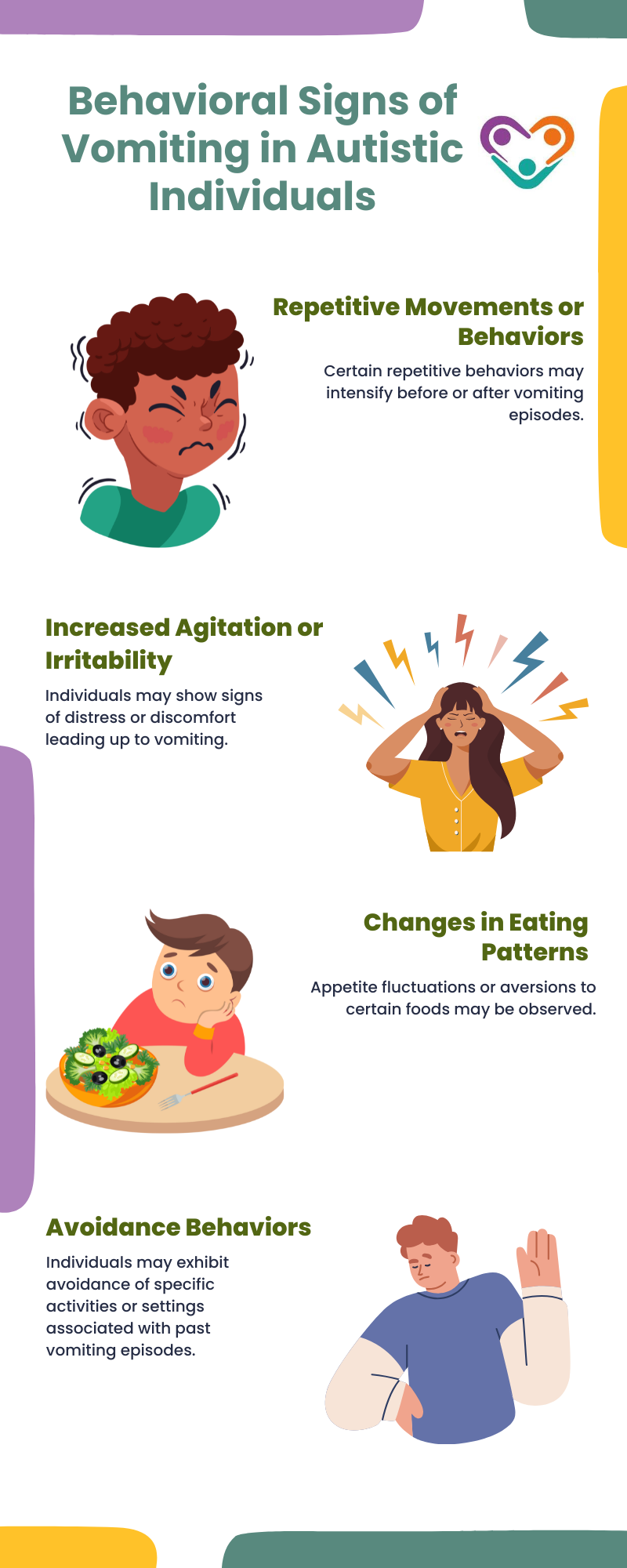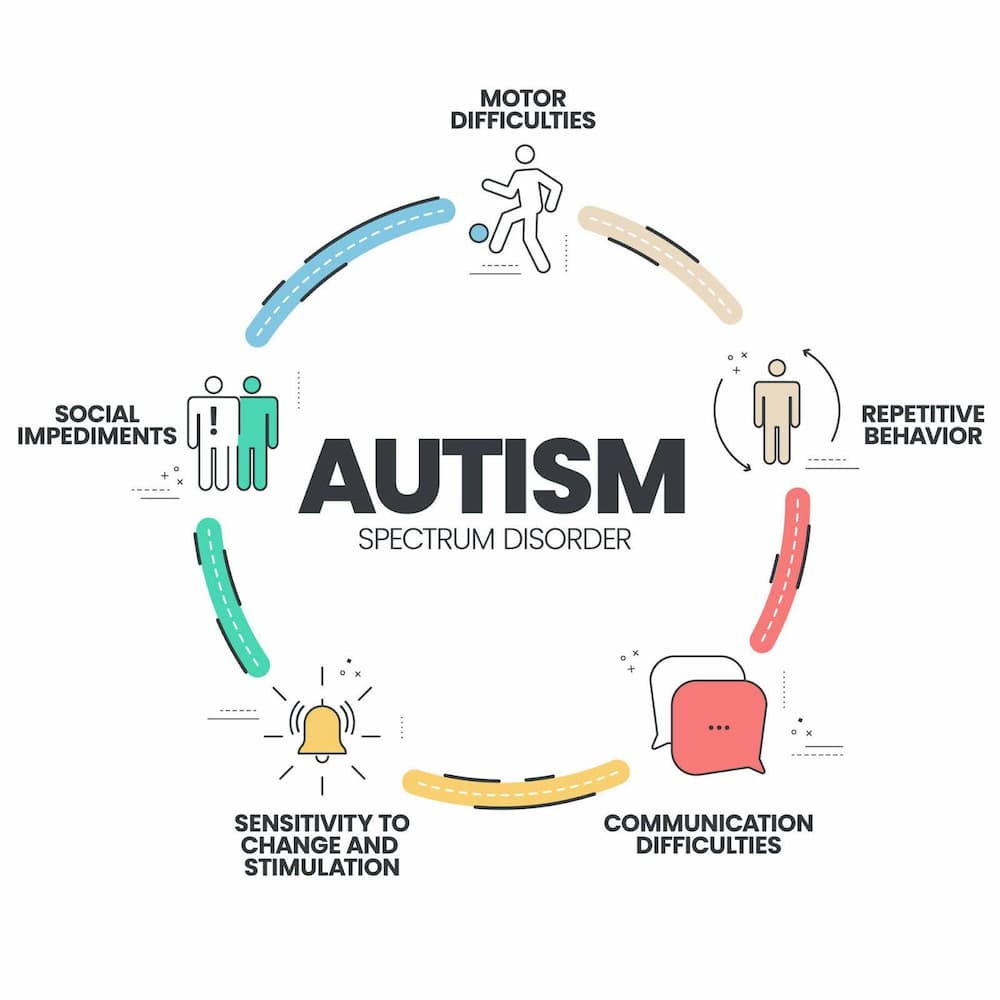Encouraging development with strategies from an Aba Therapist
Encouraging development with strategies from an Aba Therapist
Blog Article
Secret Signs and Signs to Identify in People With Behavioral Autism
When you come across a person with behavior autism, acknowledging crucial indications and signs and symptoms is necessary. You might see difficulties in social interactions and interaction, along with a solid requirement for regimens. In addition, sensory sensitivities can bring about overwhelming experiences. Understanding these traits can improve your support and interventions, but there's more to uncover about just how these behaviors manifest in everyday situations. Allow's explore what these indicators actually look like.
Obstacles in Social Communications
When you communicate with a person on the autism range, you may see they struggle with social cues and interaction. These challenges can make social interactions really feel frustrating for them.
Furthermore, you might locate that they choose regimens and familiar setups, which can restrict their readiness to engage in new social circumstances. When they do involve, they could speak about their passions in terrific information without noticing if you're interested. This can lead to discriminatory conversations that leave you really feeling separated. Comprehending these difficulties can help you approach interactions with compassion and persistence, fostering an extra comfy setting for both of you.
Difficulty With Verbal and Non-Verbal Communication

Non-verbal interaction can be also a lot more tough. You might see a lack of eye call or minimal use of motions, which can make communications feel unpleasant. Facial expressions may not constantly align with the conversation, leading to confusion about their sensations. Recognizing these indicators is necessary, as it helps you far better support and involve with individuals on the autism spectrum. By understanding their interaction obstacles, you can foster much more significant connections and provide a more helpful setting.
Repeated Habits and Regimens
Interaction obstacles frequently go along with other signs of autism, such as repeated actions and a strong choice for routines. You may notice that people with autism commonly participate in certain, repeated activities, like hand-flapping, shaking, or duplicating phrases. These habits can offer comfort and a feeling of control in a typically frustrating globe.
Regimens are similarly important; lots of people flourish when they follow a structured routine. You may discover that changes to these routines can result in significant distress. If they have a daily ritual of consuming breakfast at a specific time or following a certain route to institution, any kind of disruption can trigger stress and anxiety.
Identifying these patterns aids you understand their actions and give assistance. By suiting their need for regular and enabling repeated actions, you can create a much more comfy environment that alleviates their difficulties.
Sensory Level Of Sensitivities

Usual Sensory Triggers
Sensory sensitivities can substantially affect life for people with autism, as particular stimulations typically cause overwhelming responses. Usual sensory triggers consist of loud sounds, intense lights, and solid scents. You could see that unexpected audios, like sirens or alarms, cause anxiousness or distress. Fluorescent lighting in stores can feel extreme and uncomfortable. Appearances can likewise play a substantial function; rough fabrics or certain food appearances may be unbearable for you. Furthermore, crowded locations can bewilder your senses, making it tough to focus or relax. Recognizing these triggers can aid you manage your atmosphere better. By recognizing what impacts you, you can take steps to lessen pain and enhance your daily experiences.
Behavioral Reactions Clarified
Understanding your behavior actions to sensory level of sensitivities is essential, as they typically expose how you connect with the world. You may discover that certain sounds, lights, or textures overwhelm you, bring about anxiety or discomfort. When faced with these stimuli, you might withdraw, cover your ears, or perhaps respond aggressively. These actions aren't simply quirks; they're your means of handling overstimulation. You might also find yourself looking for details sensory experiences, like deep stress or silent settings, to assist ground on your own. Recognizing these patterns helps you recognize your requirements better and can assist exactly how you interact them to others. By recognizing your sensory sensitivities, you can work in the direction of producing a setting that really feels a lot more comfortable and convenient for you.
Coping Approaches Overview
Recognizing your sensory sensitivities is simply the very first action; now it's time click here now to discover coping methods that can aid you take care of those experiences efficiently. Begin by creating a sensory toolkit tailored to your needs. Developing an organized routine can additionally provide predictability, lowering anxiousness around sensory overload.
Limited Passions and Emphasis
While many people create a large array of interests, those with autism often show limited rate of interests and an extreme concentrate on certain subjects. You might observe that somebody with autism can spend hours diving right into their favored subject, whether it's a specific type of train, a certain flick, or a clinical principle. This extreme focus isn't just a leisure activity; it can become a central part of their identification and social interactions.
You may discover that discussions focus on these passions, and they may have a hard time to engage in more comprehensive topics. For them, these concentrated passions supply convenience and a sense of proficiency. While it is necessary to encourage expedition of brand-new topics, valuing their enthusiasms is just as crucial. By recognizing and acknowledging these limited interests, you can foster a helpful environment where they feel valued and understood, enabling even more significant connections and communications.
Emotional Policy Troubles
People with autism frequently encounter difficulties in psychological regulation, which can be affected by their intense concentrate on certain interests. You could observe that when an individual is deeply participated in a preferred task, they can experience strong feelings, whether excitement or stress. This strength sometimes makes it difficult for them to shift gears or handle their feelings when points don't go as planned.

Irregularity in Developing Milestones
When it comes to developing turning points, you'll discover that people with autism commonly reveal a large array of variability. You could see a youngster succeed in language skills however struggle with social communications.
It's necessary to acknowledge that each person's journey is one-of-a-kind. Observing these patterns can aid you comprehend their strengths and needs much better.
Regularly Asked Concerns
Exactly How Is Autism Identified in Children and Adults?
To detect autism in children and adults, specialists assess actions, interaction skills, and social interactions. They commonly make use of original site standardized examinations, interviews, and monitorings to figure out if a private satisfies the standards for autism range disorder.
Exist Various Types of Autism Spectrum Disorders?
Yes, there are different types of autism range problems, consisting of Asperger's syndrome and prevalent developmental disorder-not otherwise specified. Each kind differs in extent and qualities, so recognizing these distinctions can aid you much better assistance individuals with autism.
What Treatments Are Reliable for People With Autism?
When considering reliable treatments for individuals with autism, you'll locate choices like Applied Behavior Evaluation, speech therapy, and work-related treatment. Each approach can aid enhance communication, social skills, and daily working tailored to specific requirements.
Can People With Autism Lead Independent Lives?
Yes, people with autism can lead independent lives. With the right assistance, abilities training, and sources, you can help them create self-sufficiency, take care of everyday tasks, and thrive in various settings, fostering their self-reliance.
Exactly How Can Households Assistance Loved Ones With Autism?
You can sustain your enjoyed ones with autism by developing an organized environment, encouraging their rate of interests, exercising patience, promoting communication, and promoting social abilities. Celebrate their achievements, no matter just how little, and build an encouraging neighborhood.
Although numerous individuals on the autism spectrum can understand and use language, they usually face significant challenges with both verbal and non-verbal interaction. Recognizing these indications is crucial, as it assists you better assistance and engage with individuals on the autism spectrum. You might discover that individuals with autism usually involve in particular, repeated actions, like hand-flapping, rocking, or repeating phrases.Sensory sensitivities can substantially impact day-to-day life for individuals with autism, as specific stimuli usually cause frustrating responses.When it comes to developing milestones, you'll notice that people see this here with autism typically show a wide array of irregularity.
Report this page